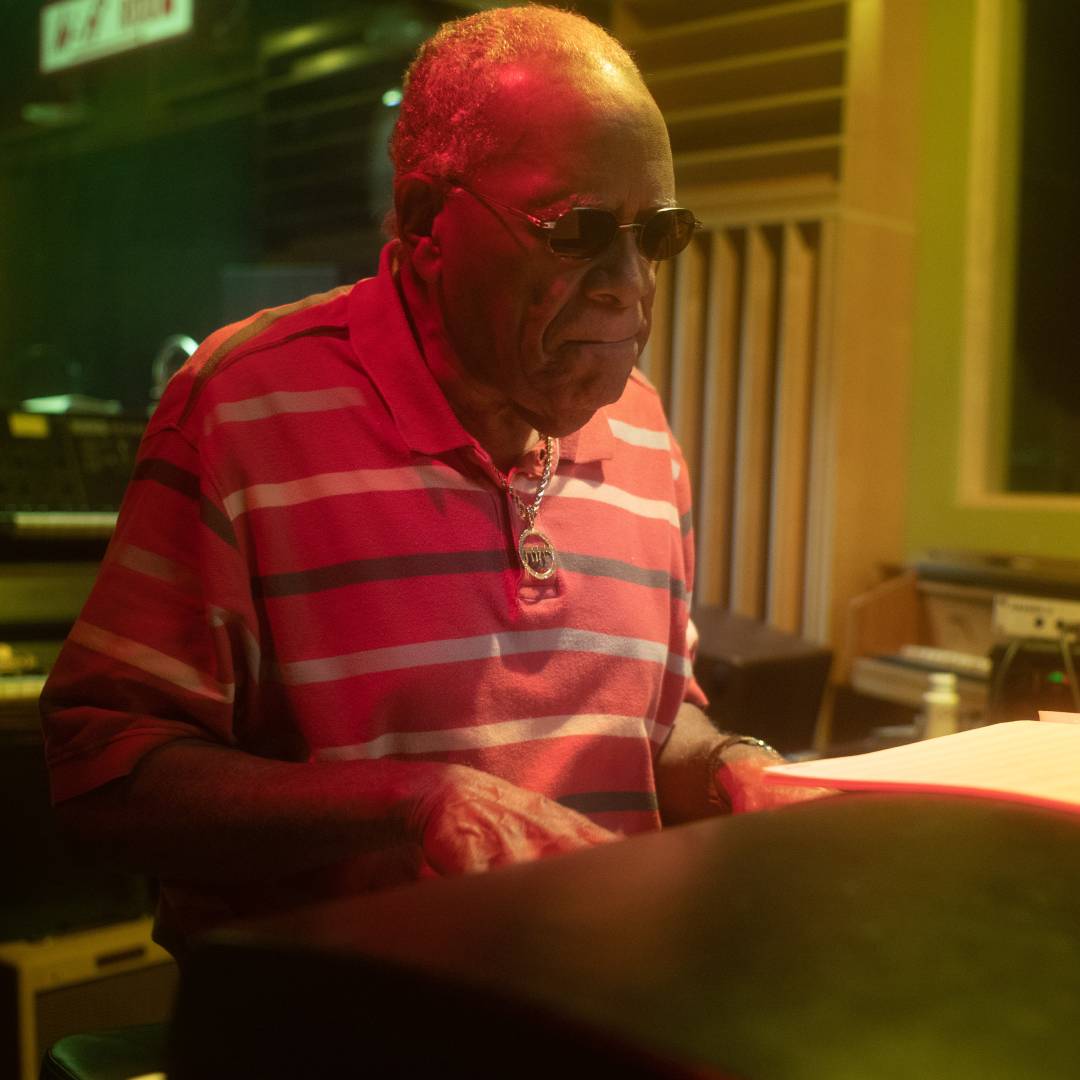Image via Jazz is Dead
Matthew Ritchie says that The Manhattans’ After Midnight is the best slow jam album ever.
Lonnie Liston Smith’s passion for gaining knowledge and understanding has led him through countless books and texts, so it was unsurprising that he encountered Amiri Baraka’s Blues People on his intellectual journey. As the 82-year-old mused about Black people’s intrinsic relationship to jazz music and his own journey through the history of the genre, there’s an undeniable joy that was felt through the phone when the book was brought up. Baraka’s seminal historical text from 1963 explained two facts that are inarguable — the history of Black American people and the history of the music they produced (gospel, blues, and jazz) are entirely intertwined, reflecting and explaining each other. The second fact was articulated by Smith after I asked him if he had read Blues People during his years spent living in New York in the 70s.
“People have to remember now, mostly all the music in America was imported,” said Smith. “The only real music created in America is the gospel, blues, and jazz. That’s modern American music, and of course, blues started way back during slavery when Black people were out on the fields. That’s really all the music that was created in America.”
The Richmond, Virginia native’s entire life has been a manifestation of this inseparable relationship. Gospel music and its stars filled his childhood home, thanks to his father’s membership in the gospel group “The Harmonizing Four.” The likes of Sam Cooke and the Soul Stirrers would stroll through his family’s halls, as Smith unconsciously absorbed the genre’s tenets through osmosis. As he moved through his childhood and high school years, experimenting on his family’s piano and turning his ear toward other genres, the watershed moment in his journey occurred when a friend’s father put on a unique record one day.
“He was playing the record and I said, ‘Well what is that? It was beautiful.” said Smith. “He said, ‘Well, that’s Charlie Parker playing ‘Just Friends’ with strings.’ I asked him why it was so beautiful — he told me he was doing improvisation, [Parker] was creating in the moment. That’s when I decided that’s what I wanted to do. That’s when I really got interested in jazz.”
This moment spurred an illustrious career that has spanned four decades and pushed upon the boundaries of blues and jazz with elegant curiosity. Prior to his solo career, he forged a path working in the bands of Miles Davis and Pharoah Sanders, gleaning all he could from the legends before beginning his own artistic journey. His work in the ‘70s on albums like his debut Astral Traveling (1973), Expansions (1975), and Visions of a New World (1975) sought to introduce a universality to jazz, surrounding his transcendent piano compositions with funky bass lines and light percussion, which gives his records an expansive feeling. The marriage of jazz, funk, and blues – “Cosmic Blues,” as he coined it during our phone call – became the staple of Smith’s sound, settling into a groove that rested in an atmospheric plane.
So it’s no surprise that 50 years after his first album, Smith’s return to music with Jazz Is Dead 17, a collaboration with Adrian Younge and Ali Shaheed Muhammad that taps into the exact vein that first put him next to the names Coltrane and Sanders. The nine tracks represent his return to music, coaxed out of his hiatus by the prospect of being flown out to Los Angeles to be part of Jazz Is Dead’s unique recording series. When he arrived on the West Coast, he was presented with a studio rife with equipment from the 70s, a bass player and drummer, and a simple plan.
“They said, ‘We have these ideas, or motifs, and we want you to develop them…and then you just play,’” said Smith.
Lonnie Liston Smith’s Jazz Is Dead retains the tenets of his discography’s core values, hinging upon the themes of love, rebirth, and universal harmony – as Smith continues to use his music as a healing tool. Sprawling, freeform compositions call back to the freedom that existed within his heyday. His driving electric keyboard crashes on “Love Brings Happiness” and “Fête.” Smith’s edition of Jazz Is Dead puts a modern twist on the throwback blues compositions that endeared him to generations of listeners.
Last month, I spoke with Smith about why he decided to return to the keys at this point, the power of jazz music as a healing component, what if feels like to be appreciated at this stage of his career, and his journey throughout life and music.

